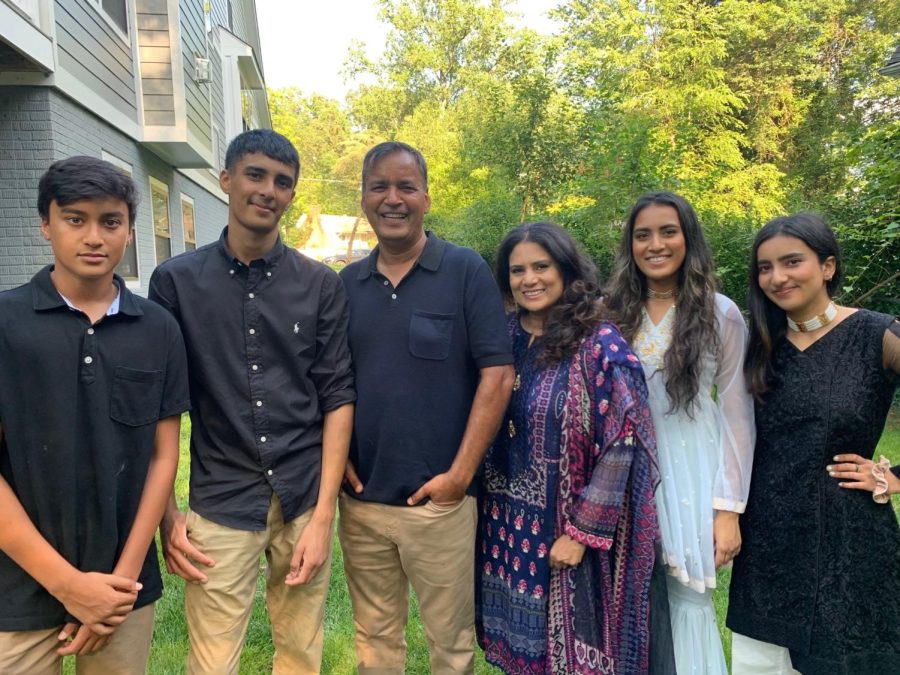Ramadan: a Month of More Than Just Fasting
April 28, 2022
During the holy month of Ramadan, Muslims build upon their relationship with Islam, Allah (God), and their own spirituality. Ramadan is the ninth month of the Islamic calendar, which is a lunar calendar, and so the month of Ramadan shifts from year to year. Usually, it’s just being shifted by a few weeks from last year’s starting date.![]()
This year, it is celebrated from April 1st to May 1st, and Eid-ul-Fitr will be celebrated May 2nd to commemorate the end of the month. For the 29 or 30 days that this month lasts, depending on the moon sighting, Muslims fast from sunrise to sunset. In observance of this month, fasting is a means of commemorating the first revelation of the Qur’an to the Prophet Muhammad.
For able-bodied adult Muslims, fasting is obligatory. Those with eating disorders and other health complications, pregnant people, menstruating people, and the elderly are exempt from fasting. Fasting during Ramadan is one of Islam’s five pillars, grounded in a time to focus and commit to practicing Islam and cleansing the mind and spirit.
In my experience, Ramadan has always drawn me closer to my community. At home, I’d attend an iftar — the meal eaten when it’s time to break fast — hosted by a family member or friend almost every night.
At Northeastern, I attend the iftars hosted by the Islamic Society and pray with the community here. This community-centered aspect of Ramadan has always brought me closer to my religion and my roots.
I asked a Northeastern graduate student, Zoya Raza, what she thought about Northeastern’s bi-weekly iftars and she said: “Northeastern’s iftars have been a unique experience to meet and spend quality time with fellow Muslims in the Northeastern community. We are able to pray together, break our fasts together, and celebrate the holy month of Ramadan together. It’s especially touching because most of us cannot spend this Ramadan with our families.”
In my experience, I have watched Ramadan touch the hearts of non-Muslims as well. My non-Muslim friend has fasted with me a few times this Ramadan. She took on the challenging task with eagerness and determination. Her experience fasting was one full of patience and ease. It showed me that fasting, although strenuous, is a rewarding experience for many. As the month winds down, I reflect upon my own actions. Ramadan isn’t just about fasting. Muslims do their best to be on their best behavior, refraining from arguing and letting their anger get the best of them while maintaining a stable, peaceful state of mind is a major component of observing Ramadan.
Worship and good deeds are held at a high value during this month. Asking God and your loved ones for forgiveness while altering your actions to reflect the changes you want to make are an integral part of Ramadan, which promotes self reflection, growth, and good deeds. It’s a time to let go of bad habits and ill feelings like anger, jealousy, and hatred.
It’s a time to make peace with yourself, those around you, and those who have wronged you. Muslims utilize Ramadan as a time to be charitable. Ramadan promotes generosity and kindness towards those who are forgotten, less fortunate, and making sure to be inclusive in the community.
For me, Ramadan often re-instills my hope in social wellness that gets lost throughout the year. I look forward to the physical, mental, and spiritual cleanse that brings out the best in people. During Ramadan, my spirituality is at its highest point and my patience, gratitude, and peace of mind are robust. Fasting is a challenge. It is not easy on the body or the mind, but Ramadan will always be my favorite time of year.


Ikra • Apr 28, 2022 at 4:13 pm
beautifully written!❤️